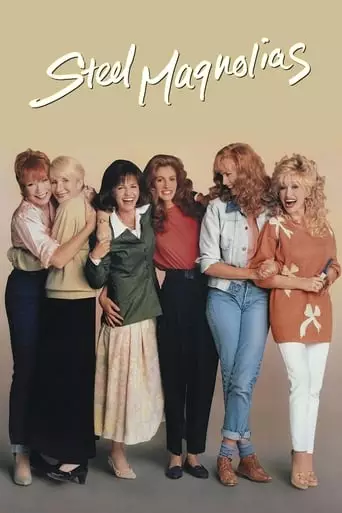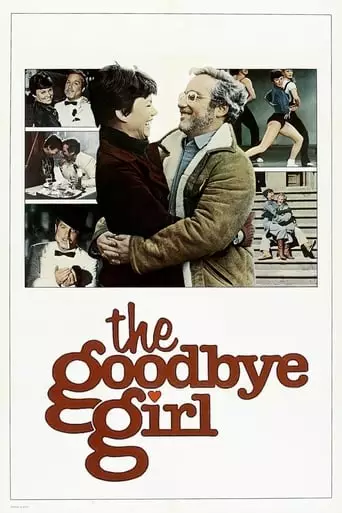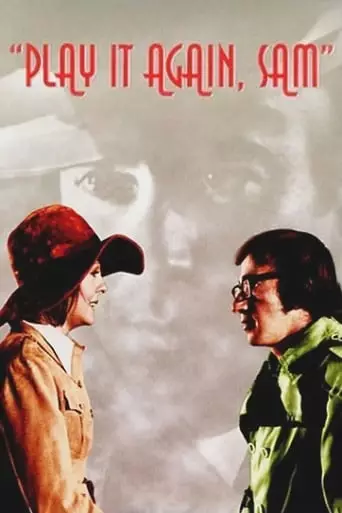A year after Sheila is killed in a hit-and-run, her multimillionaire husband invites a group of friends to spend a week on his yacht playing a scavenger hunt-style mystery game […]

A year after Sheila is killed in a hit-and-run, her multimillionaire husband invites a group of friends to spend a week on his yacht playing a scavenger hunt-style mystery game […]

When teenager Ren and his family move from big-city Chicago to a small town in the West, he’s in for a real case of culture shock after discovering he’s living […]

A young beautician, newly arrived in a small Louisiana town, finds work at the local salon, where a small group of women share a close bond of friendship and welcome […]

After being dumped by her live-in boyfriend, an unemployed dancer and her 10-year-old daughter are reluctantly forced to live with a struggling off-Broadway actor. The Goodbye Girl (1977), directed by […]

A neurotic film critic obsessed with the movie Casablanca (1942) attempts to get over his wife leaving him by dating again with the help of a married couple and his […]
Herbert Ross: The Multifaceted Filmmaker of Stage and Screen
Herbert Ross was an American director, producer, and choreographer who left an indelible mark on both Broadway and Hollywood. Known for his ability to blend dramatic storytelling with musical and dance elements, Ross directed a diverse range of films, including The Goodbye Girl (1977), Steel Magnolias (1989), and Footloose (1984). Over the course of his career, he demonstrated a remarkable versatility, crafting both crowd-pleasing hits and critically acclaimed dramas.
Early Life and Career Beginnings
Herbert David Ross was born on May 13, 1927, in Brooklyn, New York. His early life was shaped by a love of music, theater, and dance. After serving in the U.S. Army Air Forces during World War II, Ross began his career as a dancer, performing in Broadway productions and working with renowned choreographers like George Balanchine and Jerome Robbins.
Ross transitioned to choreography in the 1950s, earning acclaim for his work on Broadway musicals. His ability to craft visually stunning and emotionally resonant dance sequences quickly set him apart, leading to collaborations with major stars and directors.
Transition to Film Directing
Ross made his film directorial debut with Goodbye, Mr. Chips (1969), a musical adaptation of the classic 1939 film. Although it received mixed reviews, the project showcased Ross’s ability to translate theatrical elements into a cinematic format. This would become a hallmark of his career.
Key Films and Career Highlights
Herbert Ross’s filmography is marked by a blend of romantic comedies, dramas, and musicals. Some of his most notable works include:
The Goodbye Girl (1977): This Neil Simon-penned romantic comedy-drama became one of Ross’s most celebrated films. Starring Richard Dreyfuss and Marsha Mason, it tells the story of an unlikely romance between a struggling actor and a single mother. The film was a critical and commercial success, earning five Academy Award nominations and a Best Actor win for Dreyfuss.
Steel Magnolias (1989): A heartfelt drama about the bonds between a group of Southern women, Steel Magnolias featured an all-star cast, including Sally Field, Julia Roberts, Dolly Parton, and Shirley MacLaine. The film’s mix of humor and pathos resonated with audiences, becoming a beloved classic.
Footloose (1984): This iconic musical drama about a rebellious teenager fighting for the right to dance in a conservative town became a cultural phenomenon. Starring Kevin Bacon and featuring a chart-topping soundtrack, Footloose cemented Ross’s reputation as a director with a keen understanding of music and youth culture.
Funny Lady (1975): A sequel to Funny Girl (1968), this musical drama starred Barbra Streisand as entertainer Fanny Brice. Ross’s direction brought elegance and emotional depth to the story, earning the film five Academy Award nominations.
The Turning Point (1977): A deeply personal film for Ross, this drama about the world of ballet starred Shirley MacLaine and Anne Bancroft. The film received 11 Academy Award nominations, including Best Director, and highlighted Ross’s roots in dance and choreography.
Pennies from Heaven (1981): A visually ambitious musical starring Steve Martin and Bernadette Peters, this film blended 1930s-inspired music with dark themes. Though a box office disappointment, it has since gained recognition for its innovative style and bold storytelling.
Themes and Style
Herbert Ross’s films often explore themes of love, ambition, and personal growth. His background in dance and choreography is evident in his precise visual compositions and dynamic use of movement. Whether directing a heartfelt drama or a lively musical, Ross had a knack for bringing out nuanced performances from his actors and creating emotionally engaging narratives.
Challenges and Later Career
While Ross enjoyed significant success throughout the 1970s and 1980s, his career faced challenges in the 1990s as the popularity of musicals waned and audience tastes shifted. Films like Undercover Blues (1993) and Boys on the Side (1995) received mixed reviews, but they demonstrated Ross’s continued commitment to telling stories about relationships and human connection.
Legacy and Influence
Herbert Ross’s contributions to both theater and film have left a lasting impact. He was a pioneer in integrating dance and storytelling in cinema, and his work has inspired countless filmmakers and choreographers. Films like The Goodbye Girl and Steel Magnolias remain beloved classics, celebrated for their wit, warmth, and emotional depth.
Ross was also a champion of strong female characters, often placing women at the center of his narratives. His collaborations with legendary actresses like Shirley MacLaine, Julia Roberts, and Barbra Streisand produced some of their most memorable performances.
Personal Life
Ross was married to Lee Radziwill, the sister of Jacqueline Kennedy Onassis, from 1988 until her death in 1993. He passed away on October 9, 2001, at the age of 74, leaving behind a legacy of artistic achievement that continues to resonate with audiences.
Conclusion
Herbert Ross was a filmmaker of remarkable versatility and vision, seamlessly transitioning between the worlds of theater and cinema. His ability to craft compelling narratives, combined with his expertise in choreography and music, made him one of the most influential directors of his time. With a body of work that spans heartfelt dramas, timeless musicals, and iconic comedies, Ross’s legacy as a master storyteller endures.